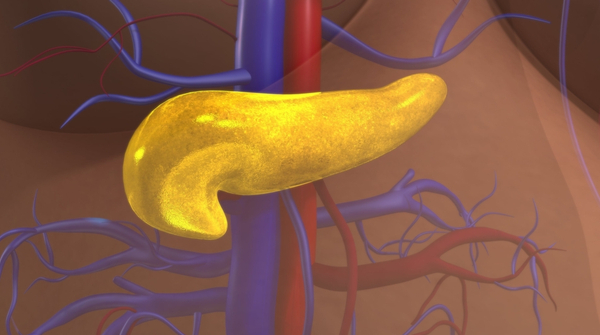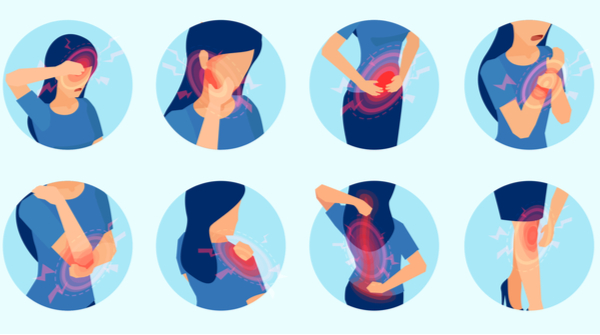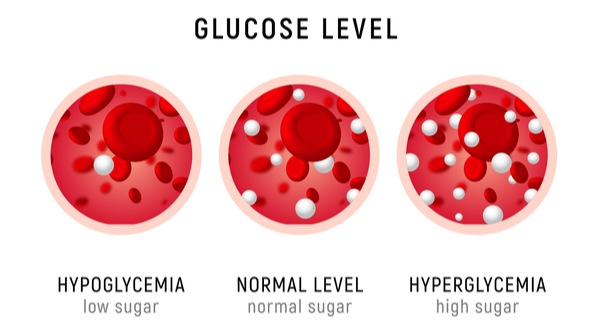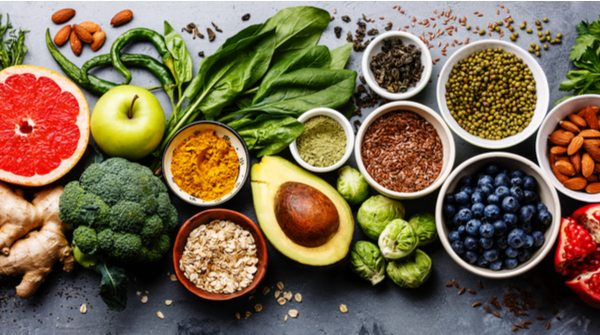Did you know people with diabetes are at a major risk for cancer? Studies have shown that elevated blood sugar levels carry a higher risk for different forms of cancer. Although diabetes and cancer together can cause a lot of difficulties in managing the former, there are a few ways that can help you bring your sugar levels to the normal range.
The Unusual Link Between Diabetes and Cancer
There is not a direct relationship between diabetes and cancer. Although research studies have indicated that there could be a link (however, there are no proofs of it yet). One of the theories that come up in the discussion to understand the link is that high levels of circulating insulin, also known as hyperinsulinemia, can cause the growth of tumours.
Cancer begins when genetic changes interfere with the growth of cells. The condition allows cells to start to grow uncontrollably. These cells then later form a nod-formation i.e. tumour. Please note a tumour can be cancerous or benign. A tumour that is cancerous can be malignant and can grow to spread to other parts of the body. However, a benign tumour can grow but will not spread to other parts of the body.
Is Type-1 Diabetes Related to Cancer?
It has not been recorded that elevated sugar levels in the body can increase the risk of cancer in people with Type-1 diabetes. In type-1 diabetes, the body is unable to produce insulin, a hormone in the body that helps in controlling blood sugar levels in the body. Therefore, Type-1 diabetics need to take external insulin to survive.
It is still not clear if there is a connection between Type-1 diabetes and cancer. However, cancers with increased risk in Type-1 diabetes include:
- Stomach cancer
- Cervical cancer
Type-2 Diabetes and Cancer
Recent studies have suggested that people with Type-2 diabetes are twice as likely to develop cancer. In fact, they also run a higher-than-normal risk of developing colon, bladder, and breast cancer. Although the research also states the absolute increased risk is low, here are the types of cancer shown that are likely to develop in Type-2 diabetes:
- Pancreatic cancer
- Liver cancer
- Endometrial cancer, also known as womb cancer
A lesser than 50% risk is seen in the following cancers:
- Colorectal cancer
- Bladder cancer
- Breast cancer
- Blood cancer
Type-2 diabetes is a condition that does not allow the body to use the insulin produced effectively. There are numerous factors, some including metabolic states in overweight, obesity, and diet that affect Type-2 diabetes that is seen to promote or inhibit cancer development.
Risk Factors of Diabetes and Cancer
There are certain factors that are common for both diabetes and cancer, especially in Type-2 diabetes. Some of them are discussed below:

- Increased insulin and other growth factors
Elevated insulin levels in the body are seen to increase the risk of colorectal, pancreatic, endometrial, postmenopausal breast, and bladder cancers. In general, insulin binding to its receptors activates the metabolic pathway stimulating glucose uptake and suppressing lipolysis.
Insulin-like growth factor-1 (IGF-1) is a polypeptide synthesised by almost all cells, but primarily by the liver. Elevated insulin in the body stimulates the production of IGF-1 and decreases the production of its binding proteins, thus increasing the availability of IGF-1. As per cell studies, it is suggested that IGF-1 is even more potent than insulin in promoting cell proliferation and the self-destruction of abnormal cells.

- Chronic inflammation
Type-2 diabetes and obesity can cause chronic low-grade inflammation, a condition where the production of free radicals can disrupt insulin signaling. Genetic mutations can increase the risk of cancer in any person. Adipose cells produce a bunch of cell-to-cell signaling proteins. These proteins trigger activation of signaling pathways to induce the expression of genes that promote cell proliferation and angiogenesis along with inhibiting apoptosis.

- Overweight and Obesity
Adipose tissue consists of immune cells, endothelial, and adipocytes cells. The cytokines that are released from the adipose cells can increase the risk of cell inflammation and insulin resistance along with associating it with cancer risk. Moreover, greater body fat, known for insulin resistance, tends to increase leptin production. This rise in leptin levels can cause an increase in cell inflammation and hyperinsulinemia. In cell studies, leptin is also linked to promoting cell proliferation and angiogenesis.

- Hyperglycemia affects
Another factor to be considered is the involvement of blood glucose levels in the diabetes-cancer link. Elevated sugar levels can increase the production of free radicals and other reactive molecules that cause oxidative damage to DNA. Further, these reactive molecules lead to mutations in oncogenes and tumour suppressor genes. Although the research is unclear about whether higher circulating glucose particularly fuels malignant cell growth.
How to Lower Your Risk of Cancer
Although the connection between diabetes and cancer is still not proven, studies have shown significant reasons to believe that cancer screening, along with diabetes care, is necessary to reduce any kind of complications.
Here are 5 ways to lower your risk of cancer with diabetes:
Aim for a healthy body fat level
Excess body fat is not only associated with diabetes but also with different types of cancer. Abdominal fat is known to cause insulin resistance, and as mentioned above, elevated blood sugar levels increase the risk of inflammatory cytokines. Therefore, it is essential to aim for a healthy level of body fat. If you are planning to lose weight, it is recommended a 7% loss or even a loss of 2-8 kgs can give immense benefits.

Eat more vegetables, fruits, beans, and whole grains
A plant-focused diet can help you lower your cancer risk. Plant foods are a great supplier of dietary fibre and nutrients that protect you from cancer development. In fact, dietary fibre is known to lower the risk of colorectal cancer. It is best to include 2.5 cups of non-starchy and a variety of fruits and vegetables, whole-grain choices, and beans in your diet.

Limit processed meat and forms of red meat
According to studies, consuming meat daily causes an increase in colorectal cancer by 17 per cent. Moreover, processed meat must be avoided that is generally packed by smoking, salting, or adding preservatives. Substitute red meat with legumes and add fibre compounds to your diet.

Avoid consuming excess alcohol
Alcohol in moderation is known to reduce insulin resistance in the body. However, consuming an excess amount of alcohol can increase the risk of diabetes and colon cancer, breast cancer, and mouth and throat cancers. If at all consumption of alcohol feels necessary, limit your drinks to two for men and one for women.
Read More: Is Beer Good For Diabetics?

Limit your sedentary time
Regular physical activity not only helps in reducing body fat but also keeps your diabetes in check. In fact, any form of activity is known to reduce the risks of cancer, especially endometrial, postmenopausal, and colorectal cancers. It is recommended to at least include 30 minutes of physical activity in your daily routine and eventually increase it to 60 minutes of moderate and 30 minutes of vigorous activity.
To learn more about diabetes and expert’s guidance, download the BeatO App.






